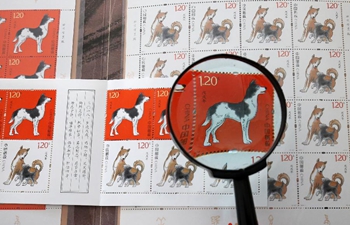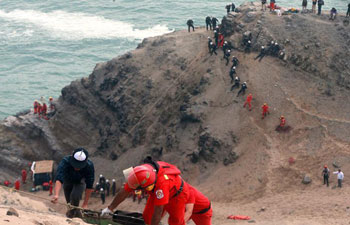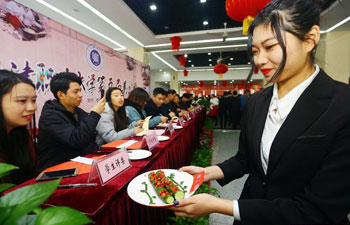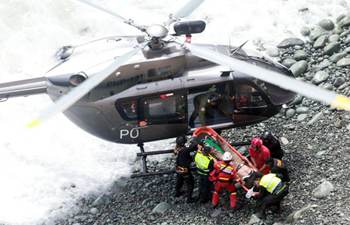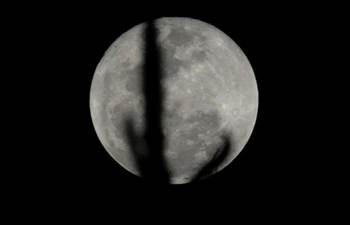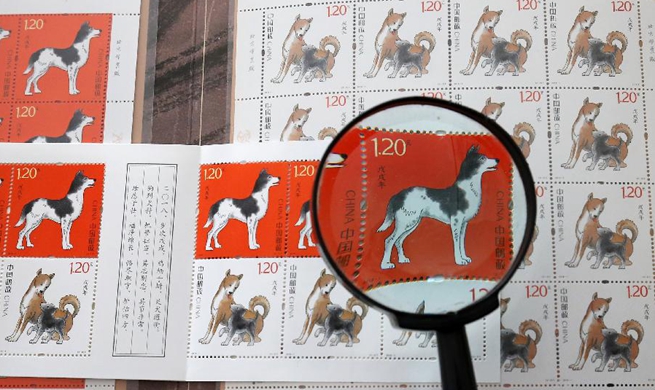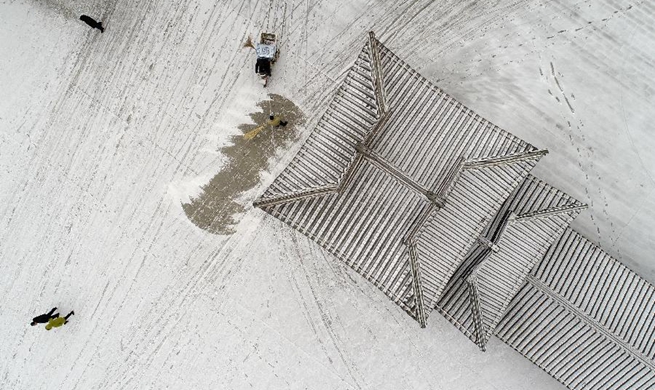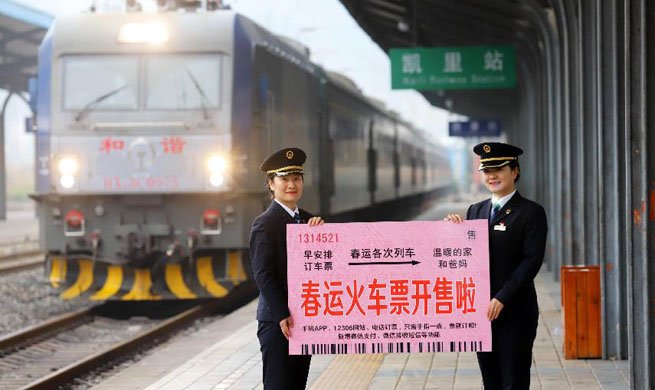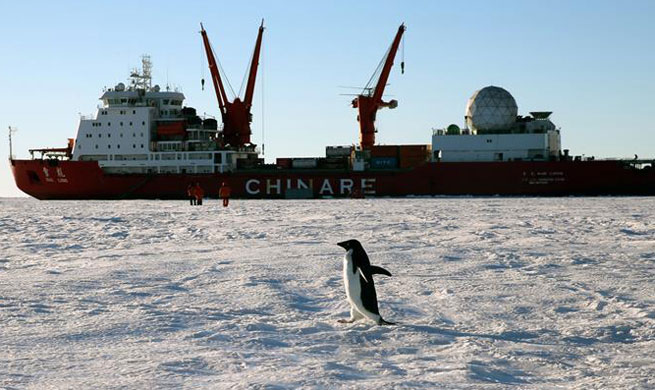BEIJING, Jan. 3 (Xinhua) -- After five years fighting air pollution, Beijing and neighbors are finally breathing noticeably cleaner air, with sales of anti-smog mask down markedly.
The average density of PM2.5 in Beijing was 58 micrograms per cubic meter last year, meeting the target and 20.5 percent less than in 2016, Liu Baoxian, deputy director of Beijing environmental protection monitoring center, told a press conference.
Densities of sulfur dioxide, nitrogen dioxide and PM10 also dropped by 20 percent, 4.2 percent and 8.7 percent, respectively.
The 226 good air days in 2017 were 28 more than in 2016, while the number of heavy pollution days fell from 39 to 23.
An air pollution plan issued by the State Council in September 2013 ordered Beijing to reduce its PM 2.5 density from 90 in 2013 to around 60 micrograms per cubic meter by the end of last year.
Among pollution controls were demolition of coal-fired boilers and the phasing out vehicles with high emissions, according to Li Xiang, of Beijing bureau of environmental protection.
Li said small coal-fired boilers had almost vanished, replaced by gas or electricity, and all districts in the city proper had stopped coal use.
Since 2013, Beijing has shut down six cement plants and closed or upgraded nearly 2,000 companies in printing, casting, furniture manufacture and other sectors, she said.
Air quality also improved this year in the neighboring Hebei Province.
The smog-prone province reported fairly good air quality for 66 percent of days since Oct. 1, the best record in five years, provincial environmental protection authorities said last month.
Improved air quality has reduced sales of masks. At Gukang Pharmacy in Yuhua District in Shijiazhuang, capital of Hebei Province, sales of smog masks dropped by 60 to 70 percent this winter compared with the same period in 2016.
"Instead of smog masks, we have sold more anti-flu masks," said saleswoman Liu at the pharmacy.
According to Tmall, sales of smog masks fell by 52 percent year on year from Dec. 1 to 15, 2017 in Beijing. Neighboring Tianjin and Shijiazhuang showed similar patterns.
"Of mature markets in Shanghai, Guangzhou, Shenzhen and Hangzhou, sales only contracted in Beijing, indicating improved air quality in the capital," said Xiao Yu, manager of Tmall Beijing.
Beijing office worker Wang Li said she had asked her friends to bring her masks from Japan, as her chosen brand often ran out in China in the smog season.
"I gave some away as gifts and have only used two masks myself this winter," she said.
While Beijing and nearby areas are far from pollution-free, air quality there is still worse than the national average. The region is home to half of the ten most polluted cities across the country.
According to environmental official Liu, PM2.5 in Beijing was 66 percent higher than the national standard, with nitrogen dioxide and PM10 15 percent and 20 percent higher than the national standard.
"We have made progress while maintaining growth, but still have a long way to go," he said.




